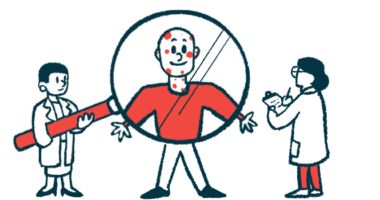How we fight the fatigue that comes with LEMS
It's a tricky symptom to manage, but these tips have helped my daughter

Life changed when our daughter Grace was diagnosed with Lambert-Eaton myasthenic syndrome (LEMS). As her health declined rapidly and drastically, it was hard to watch her lose mobility and control of her body.
But over time, her health rebounded. After finding the right treatment, Grace regained muscle strength and the ability to walk.
However, fatigue settled over her that she couldn’t shake. She continued to get stronger physically, but the fatigue never lifted, stealing big chunks of her day. Grace missed many activities because she was simply too tired to participate.
In Grace’s particular situation, we found that immune suppression helped the most in reducing fatigue, but she still combats the symptom to varying degrees.
We’ve received a lot of advice on how to fight fatigue over the years, but Grace and I have found the following tips to be the most helpful.
Eat a healthy diet
As with any autoimmune disease, we know that diet can be extremely important. Many people suggested that Grace follow the autoimmune protocol (AIP) diet, which eliminates inflammatory foods and prioritizes nutrient-rich ones. This can help to reduce inflammation, which may alleviate autoimmune symptoms like fatigue.
In Grace’s case, we found the AIP diet too restricting. Grace had lost well over 15 pounds since the onset of LEMS, leaving her at a mere 71 pounds. She couldn’t afford to lose any more weight. We held off on drastically changing her diet, although it’s an option we revisit often. We do encourage her to limit sugar and processed foods.
Manage stress
Stress is a huge factor in exacerbating Grace’s symptoms. When under significant physical or emotional stress, we see Grace’s fatigue and muscle weakness increase drastically. Therefore, Grace is learning techniques to help manage her stress. Some people alleviate it through relaxation techniques like yoga or meditation. Others seek out emotional help through counseling. Having a firm support system of family and friends is also important.
One of the best ways Grace has managed stress is through animal therapy. For three years, Grace has participated in equine therapy. Not only has it relieved her stress, but it’s also built her confidence, leadership abilities, and muscle tone.
Get enough sleep
Based on our personal observations, sleep issues seem to be common among those with autoimmune diseases, particularly LEMS. This is no different for Grace. She consistently struggles to get a good night’s rest, as both falling and staying asleep are difficult for her. It’s common for her to wake up multiple times throughout the night.
Grace has learned to be proactive about making several changes to improve her sleep hygiene. She knows she can’t use electronic devices for an hour before bed or it will take her hours to fall asleep. She also stays away from caffeine and keeps her room dark and cool. Sleep is still a struggle, but any extra rest she gets is worth the effort.
Anticipate dips in energy
Grace has learned to anticipate dips in her energy levels and plans her days accordingly. For instance, she knew her body would carry increased stress during finals week at school, so she was careful to build in a day after finals to stay home and rest. She knew enough about her body to realize she would face extra fatigue that week.
Unfortunately, I think a certain degree of fatigue will plague Grace, no matter what we try. But it’s still worth the effort to fight it as best we can so that Grace can live a full life.
How do you fight fatigue with LEMS? Please share in the comments below.
Note: Lambert-Eaton News is strictly a news and information website about the disease. It does not provide medical advice, diagnosis, or treatment. This content is not intended to be a substitute for professional medical advice, diagnosis, or treatment. Always seek the advice of your physician or other qualified health provider with any questions you may have regarding a medical condition. Never disregard professional medical advice or delay in seeking it because of something you have read on this website. The opinions expressed in this column are not those of Lambert-Eaton News or its parent company, Bionews, and are intended to spark discussion about issues pertaining to Lambert-Eaton myasthenia syndrome.








Comments
Dawn DeBois
Lori, this article and helpful hints as to how to best deal with and manage LEMS fatigue was spot on. Eating healthy is important but the AIP diet is so restrictive as well as out of budget for most disabled LEMS patients who are on strict budgets. Sleep hygiene, everyone could benefit from that with or without LEMS. It’s a great reminder, for sure. Stress management is KEY! I’m always amazed how badly I flare when under extra amounts of stress! The final point you gave, that she anticipates her dips in energy, I felt like she’s, unfortunately, a seasoned pro at this at her young age. I didn’t need to start doing that until my 40s. The only tidbit that I’d like to add is giving yourself permission to listen to your body and rest when you need to is so important. Society sets such a high standard, especially in the USA, that the guilt that we can feel from resting when everyone is is “doing” can be another trigger of our symptoms if not careful. My doctors did a great job of reminding me of all that I was battling when I’d call telling them I hadn’t been able to leave my recliner for days. Giving myself permission to rest when I needed to, without guilt, took a huge loaf off my shoulders.
Grace is so lucky you are her mom and the LEMS community as a whole is so fortunate to have you share your wisdom with all of us, too!